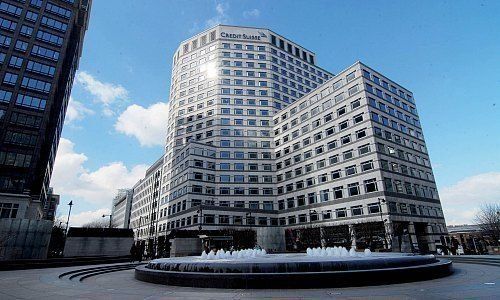A former Credit Suisse banker and has pleaded guilty to taking kickbacks in a scandal over loans to impoverished Mozambique. He is the second investment banker of the Swiss firm to admit wrong-doing.
The billion-dollar credit scandal in Mozambique, which Credit Suisse plays a central role in, entered its next round: Andrew Pearse, the London-based former head of global financing at the Swiss bank pleaded guilty to taking part in a fraud scheme involving the southern African nation, according to media reports.
Credit Suisse has sought to downplay its ties to the oil- and gas-rich eastern African nation. The country defaulted last year, after it surfaced that some funds intended for infrastructure like tuna-fishing boats allegedly went towards military equipment instead. Credit Suisse and VTB had emitted bonds with a coupon of 8.5 percent for parts of the loans granted to Mozambique, but not told investors it granted further loans to the impoverished country.
Enriching Bankers
Pearse, a 49-year-old New Zealander, was portrayed as the ringleader of the scheme. His former employee, Detelina Subeva, had already pleaded guilty in May. Credit Suisse has previously said the bankers went rogue to circumvent Credit Suisse's compliance controls in order to enrich themselves. The bank, which is cooperating with the clean-up isn't in the focus on investigators.
Pearse reportedly told investigators that the kickbacks and other illegal payments stemmed from Privinvest Group. Privinvest is controlled by Iskandar Safa, a Franco-Lebanese billionaire, and is a major shareholder in Abu Dhabi Mar, a firm that has received some of the loans granted to the African nation.
Millions in Kickbacks
Privinvest staff «wired me millions of dollars in unlawful kickbacks from loan proceeds and illegal payments for my assistance in securing loans by Credit Suisse,» Pearse said in court. He pointed to Safa and Jean Boustani, a Privinest employee.
Privinvest denied wrong-doing, saying neither it nor its CEO, Safa, is part of the U.S. investigation. Two employees – Boustani, main salesman and negotiator, and Najib Allam, finance boss – were named in the December indictment.
African Default
Pearse told investigators that Privinvest had also funneled money to the son of Mozambique's leader at the time. The coastal nation defaulted last year. The U.S. indictment raises questions over why bankers were running bonds for somewhat dubious projects.
Loans meant to build a tuna-fishing fleet, patrol boats, and dockyard for example, were allegedly diverted. The scandal in Mozambique created a major crisis for the country because the loans were not revealed to other creditors and the International Monetary Fund.


































